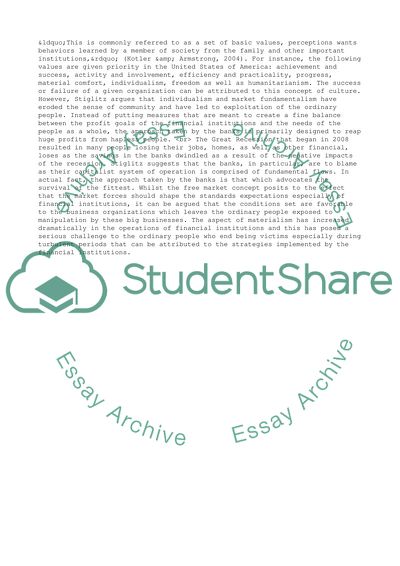Cite this document
(Freefall: Free Markets and the Sinking of the Global Economy Dissertation - 1, n.d.)
Freefall: Free Markets and the Sinking of the Global Economy Dissertation - 1. Retrieved from https://studentshare.org/business/1750963-consider-these-arguments-in-terms-of-culture-motivation-and-strategy-and-comment-on-their-substance-you-should-also-reflect-on-how-power-is-exercised-in-organisations-in-relation-to-moral-values
Freefall: Free Markets and the Sinking of the Global Economy Dissertation - 1. Retrieved from https://studentshare.org/business/1750963-consider-these-arguments-in-terms-of-culture-motivation-and-strategy-and-comment-on-their-substance-you-should-also-reflect-on-how-power-is-exercised-in-organisations-in-relation-to-moral-values
(Freefall: Free Markets and the Sinking of the Global Economy Dissertation - 1)
Freefall: Free Markets and the Sinking of the Global Economy Dissertation - 1. https://studentshare.org/business/1750963-consider-these-arguments-in-terms-of-culture-motivation-and-strategy-and-comment-on-their-substance-you-should-also-reflect-on-how-power-is-exercised-in-organisations-in-relation-to-moral-values.
Freefall: Free Markets and the Sinking of the Global Economy Dissertation - 1. https://studentshare.org/business/1750963-consider-these-arguments-in-terms-of-culture-motivation-and-strategy-and-comment-on-their-substance-you-should-also-reflect-on-how-power-is-exercised-in-organisations-in-relation-to-moral-values.
“Freefall: Free Markets and the Sinking of the Global Economy Dissertation - 1”, n.d. https://studentshare.org/business/1750963-consider-these-arguments-in-terms-of-culture-motivation-and-strategy-and-comment-on-their-substance-you-should-also-reflect-on-how-power-is-exercised-in-organisations-in-relation-to-moral-values.


